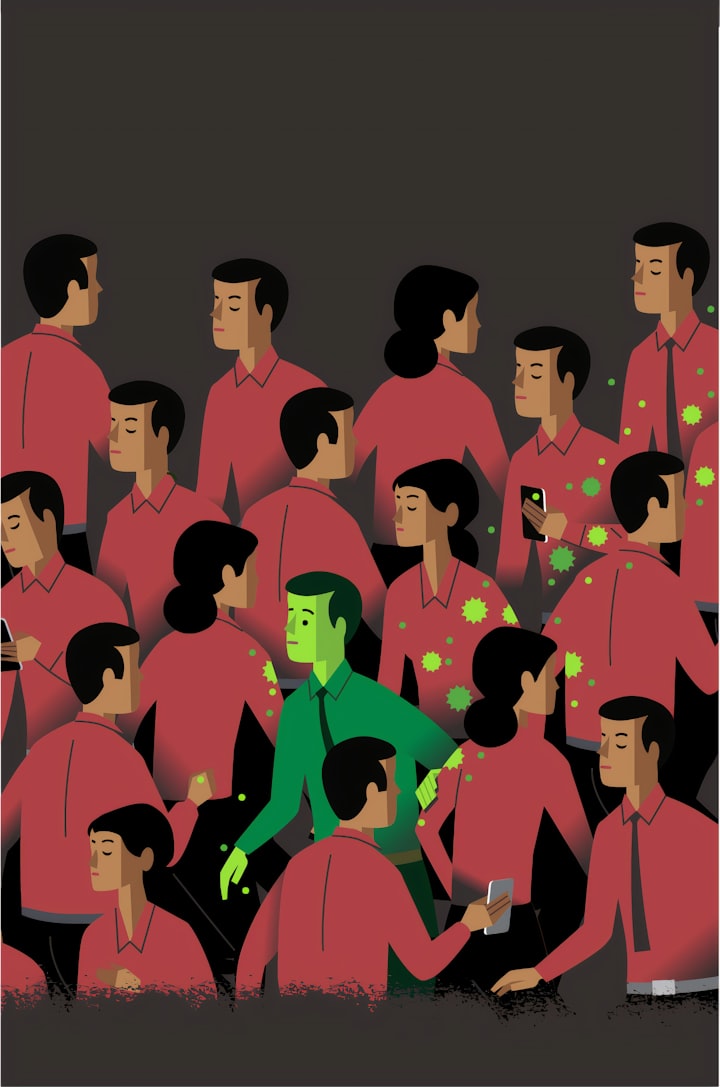The outbreak exposed a lack of medical practitioners and resources in rural America.
56 percent reported adverse health consequences, in this opinion.

24 percent of households in rural America reported that they were unable to receive treatment for serious medical problems during the COVID-19 outbreak.
According to new polls by the Harvard School of Public Health, the Robert Wood Johnson Foundation, and National Public Radio.
It provides a glimpse into the life and personal well-being of rural America during the pandemic.
Of the households who reported they had no access to healthcare, 56 percent reported adverse health consequences, in this opinion.
Professor of Public Health Robert J.Blendon, deputy opinion director, said most of the data collected on the coronavirus only focuses on cases and the number of deaths. new opinion, meanwhile, focuses on previously unexplored welfare issues.
"If you look, almost all the stories are about cases, screening, and deaths," said Blendon. "We're not asking if you've been questioned.
We don't ask if someone died in your family. We ask about your ability to keep your household viable, namely financial matters, getting health care, and so many people trying to educate their children at home during this period. "
Blendon said the outbreak exposed a lack of medical practitioners and resources in rural America, leading to a lack of access to care.
He said that in cities, healthcare providers have tried to build "networks" to distribute COVID-19 patients evenly across different hospitals, so that no provider is overwhelmed.
"In rural America, the network doesn't exist," says Blendon. And many of the medical practices are three doctors.
Internet connectivity also poses widespread problems for rural America, in the opinion.
Roughly one in three rural households report experiencing serious difficulties with internet connectivity or a complete lack of access to high-speed internet.
Connectivity issues come at a cost at a time when work and school rely heavily on internet access, according to Blendon.
"I'm in rural Illinois, and I can work from home - that's if I can connect with my employer," says Blendon. "Otherwise, I won't keep this job for too long.
So this is a very real problem. "
In addition, nearly half of the households surveyed reported facing serious financial problems during the pandemic.
"I don't believe you would have 42 percent of households in serious financial trouble. So maybe I thought 20, maybe I thought 18," Blendon said. "And then when you come to minority communities, 85 percent of black or Latino families say they are in financial trouble."
the opinion is part of an ongoing partnership between the School of Public Health, the Robert Wood Johnson Foundation and NPR. For more than ten years, the three groups have worked together to conduct polls in America on a variety of issues, including discrimination and income inequality.
Carolyn E. Miller, Senior Programs Officer at the Robert Wood Johnson Foundation, says the partnership provides a wealth of resources for large, detailed surveys of broad and important issues.
"Many of the studies we did under this grant were much larger than most surveys or research efforts that could be undertaken," Miller said. "So, it's really great for us to be able to do this, to support this kind of research."
Risk of major measles outbreaks as countries delay vaccination drives
The outbreaks were largely due to low routine immunization coverage or delayed vaccination drives
Fifteen African countries delayed measles immunization drives last year as they dealt with the COVID-19 pandemic. While seven of these countries have now completed the campaigns, eight remain outstanding, posing a risk of major measles outbreaks.
On the eve of the African Vaccination Week – the annual campaign for universal access to life-saving vaccines on the continent – new, early data shows that an estimated 16.6 million children in Africa missed planned supplemental measles vaccine doses between January 2020 and April 2021 and eight African countries reported major measles outbreaks that affected tens of thousands during the period. The outbreaks were largely due to low routine immunization coverage or delayed vaccination drives. In addition, the quality of measles surveillance in Africa fell to the lowest level in seven years in 2020, with just 11 countries meeting their target.
“Recent outbreaks of measles, but also yellow fever, cholera and meningitis all point to worrying gaps in immunization coverage and surveillance in Africa. As we fight COVID-19, we cannot leave anyone dangerously exposed to preventable diseases. I urge all countries to double down on essential health services, including life-saving vaccination campaigns,” said Dr Matshidiso Moeti, World Health Organization (WHO) Regional Director for Africa.
Measles is highly contagious, requiring at least 95% immunization coverage in the population to prevent outbreaks, yet coverage with the first dose of the measles-containing vaccine has stagnated at around 69% in the WHO African Region since 2013. Only seven countries in the region achieved 95% measles-containing vaccine coverage in 2019.
The low measles coverage reflects a wider stagnation in routine immunization in Africa that, in some countries, has been exacerbated by the pandemic and related restrictions. Most diseases, including tetanus, diphtheria and yellow fever, require 90% coverage in the population, yet rates in Africa remained stuck at around 70 to 75% over the last decade.
Around 9 million children in the African region miss life-saving vaccines each year and one in five children remain unprotected from vaccine preventable diseases, which claim the lives of over 500 000 children under 5 years in Africa every year.
Despite challenges, Africa was declared wild polio-free in 2020. Vaccines are having a huge impact on diseases like cervical cancer, hepatitis and Ebola. The region has made significant gains against meningitis A in recent years and new and underutilized vaccines have been introduced, including the pneumococcal conjugate vaccine in 40 African countries. Over 116 million children were vaccinated with the third dose of the pneumococcal conjugate vaccine between 2015 and 2019.
Alongside the rollout of COVID-19 vaccines, WHO is working with African countries to ensure that routine immunization service delivery is scaled up to close the gaps created at the start of the pandemic. This includes providing policy guidance, helping strengthen health systems, training health care professionals, reinforcing disease surveillance and the use of data for action, as well as assisting with periodic mass vaccination campaigns for a range of vaccine preventable diseases.
“Integrated action is needed to increase and expand access to immunization as part of primary health care. This must be backed by a well-trained workforce, strong surveillance, health information systems, national leadership, management and coordination. We must also engage more with community leaders and influencers to ensure that everyone understands the life-saving, transformative promise of vaccines,” said Dr Moeti.
WHO and Member States will observe the 11th African Vaccination Week from 24 to 30 April 2021 – an annual campaign that unites partners in calling for universal access to life-saving vaccines and greater collective action on immunization in Africa.
Dr Moeti spoke during a virtual press conference today facilitated by APO Group. She was joined by Hon Dr Austin Demby, Minister of Health and Sanitation, Sierra Leone. Also on hand from the WHO Regional Office for Africa to answer questions were Dr Ambrose Talisuna, Programme Manager Emergency Preparedness, Dr Phionah Atuhebwe, Vaccines Introduction Officer, Dr Thierno Balde, Team Leader, Operational Partnerships, and Dr Ado Bwaka, Team Leader for Vaccine Preventable Diseases.
Distributed by APO Group on behalf of WHO Regional Office for Africa.
About the Creator
Viona Aminda
Not a fiction story telling






Comments
There are no comments for this story
Be the first to respond and start the conversation.